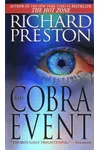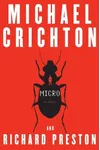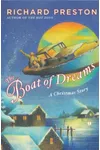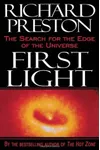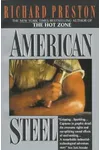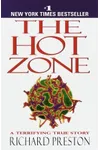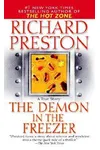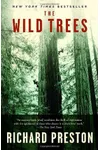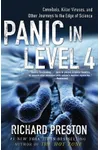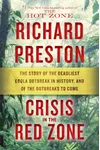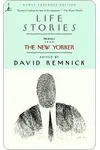Picture an American storyteller who turned microscopic viruses into heart-pounding thrillers—meet Richard Preston! Born in 1954, this bestselling author has a knack for blending hard science with gripping narratives, making books like The Hot Zone and The Cobra Event impossible to put down. His work doesn’t just entertain; it sparks real-world conversations about pandemics and bioterrorism.
With a style that feels like a blockbuster movie, Preston’s meticulous research and vivid prose bring science to life for millions. Ready to dive into his world of viruses, adventure, and awe-inspiring facts? Let’s explore the life and legacy of this literary trailblazer!
The Making of Richard Preston
Richard Preston was born on August 5, 1954, in Cambridge, Massachusetts, where curiosity shaped his early years. A graduate of Pomona College and later Princeton University, where he earned a Ph.D. in English, Preston’s love for storytelling was evident early on. His fascination with science and nature, sparked by childhood explorations, set the stage for his unique career. Initially a journalist, he honed his ability to distill complex ideas into compelling narratives, a skill that would define his books.
Preston’s big break came with his shift to nonfiction thrillers, inspired by real-world scientific challenges. His ability to humanize scientists and their discoveries made him a standout, paving the way for his meteoric rise in the literary world.
Richard Preston’s Unforgettable Stories
Preston’s breakthrough, The Hot Zone (1994), is a chilling nonfiction account of Ebola’s emergence, blending scientific rigor with pulse-pounding suspense. The book’s vivid depiction of viral outbreaks captured readers’ imaginations and even influenced public health discussions. It’s no wonder it became a bestseller!
His novel The Cobra Event (1997) took a fictional turn, exploring bioterrorism with such realism that it reportedly caught the attention of President Bill Clinton, prompting policy discussions. Preston’s ability to weave fact and fiction shines here, keeping readers on edge. Other notable works include Crisis in the Red Zone (2019), a gripping follow-up to The Hot Zone, and The Demon in the Freezer (2002), which tackles smallpox and anthrax threats with his signature intensity.
Preston’s style is immersive, almost cinematic, with a journalist’s eye for detail and a novelist’s flair for drama. His themes—humanity’s fragility, the power of science, and the unpredictability of nature—resonate deeply, making his books both educational and thrilling.
Why Richard Preston Matters
Richard Preston’s impact goes beyond the page. His books have shaped public understanding of pandemics and bioterrorism, making complex science accessible and urgent. The Hot Zone alone inspired films, TV shows, and even informed policy debates, cementing his role as a cultural influencer. By humanizing scientists and their struggles, Preston bridges the gap between experts and everyday readers.
His legacy lies in his ability to spark curiosity and caution, reminding us of nature’s power and humanity’s resilience. For readers, he’s a guide into the thrilling intersection of science and storytelling, leaving a lasting mark on both literature and society.
About Richard Preston
- Born: August 5, 1954, in Cambridge, Massachusetts
- Key Works: The Hot Zone, The Cobra Event, The Demon in the Freezer, Crisis in the Red Zone
- Education: Ph.D. in English from Princeton University
- Notable: His work influenced public health policy and inspired adaptations
Snag The Hot Zone and dive into Richard Preston’s thrilling world of science and suspense!
